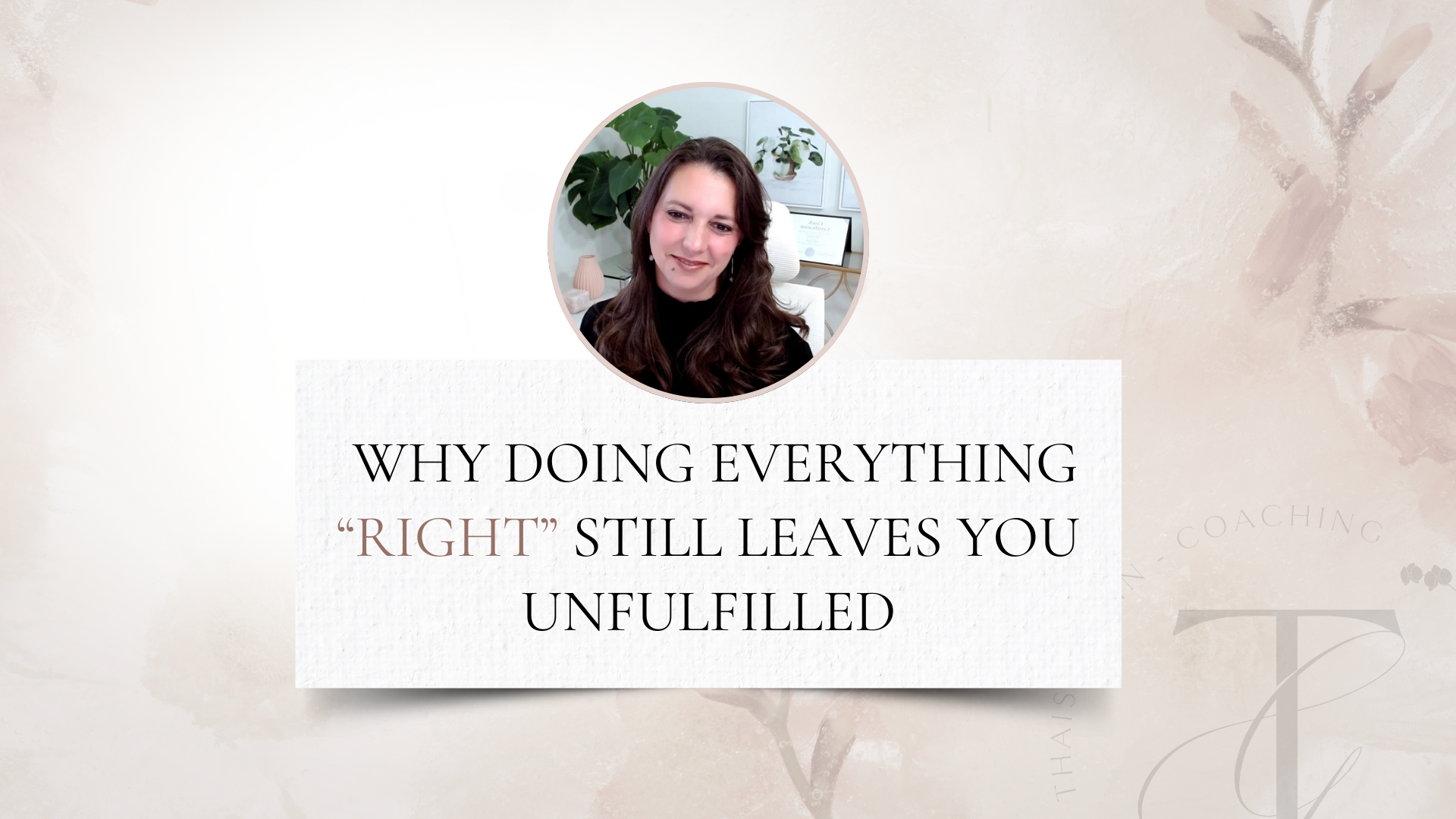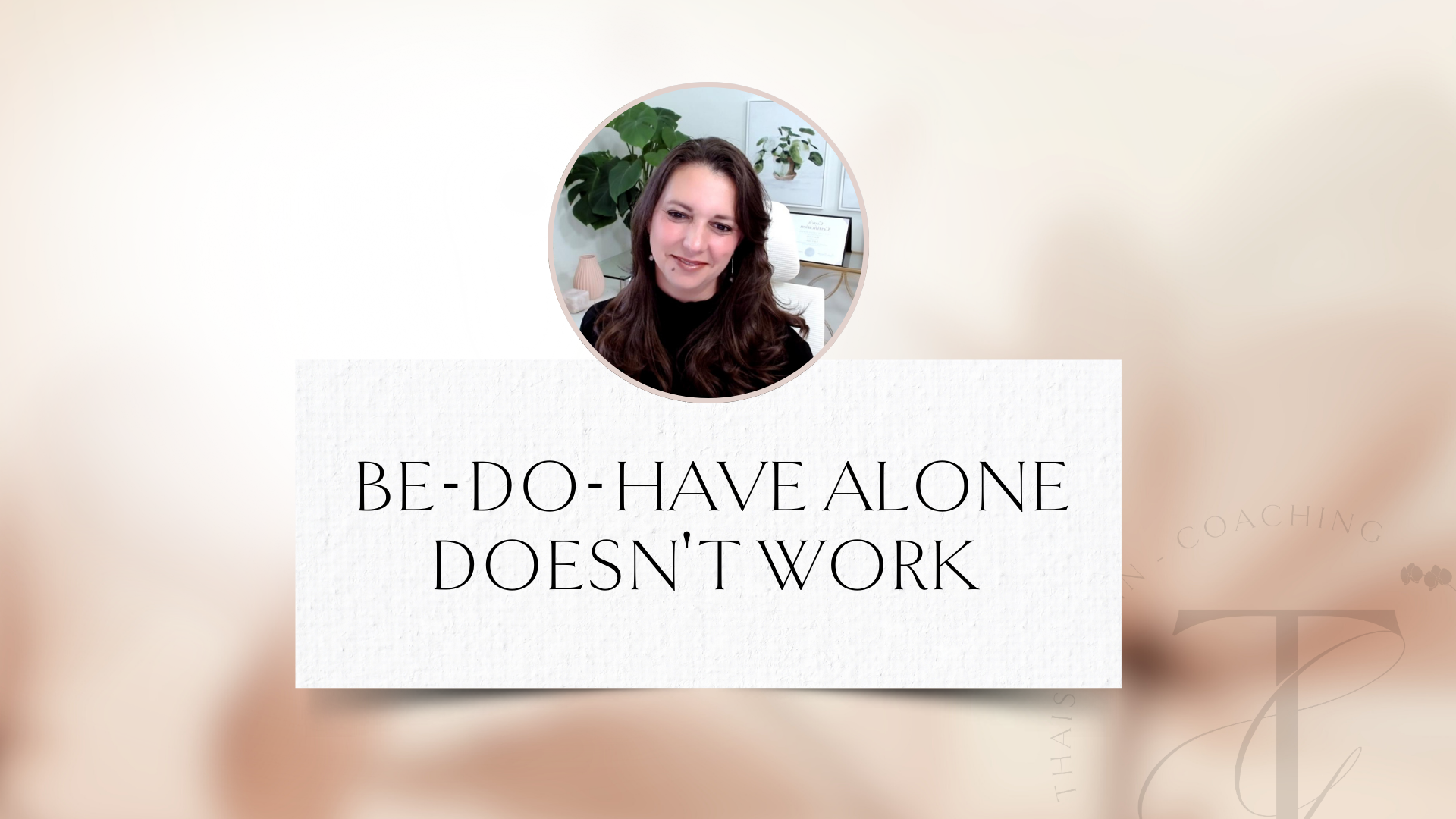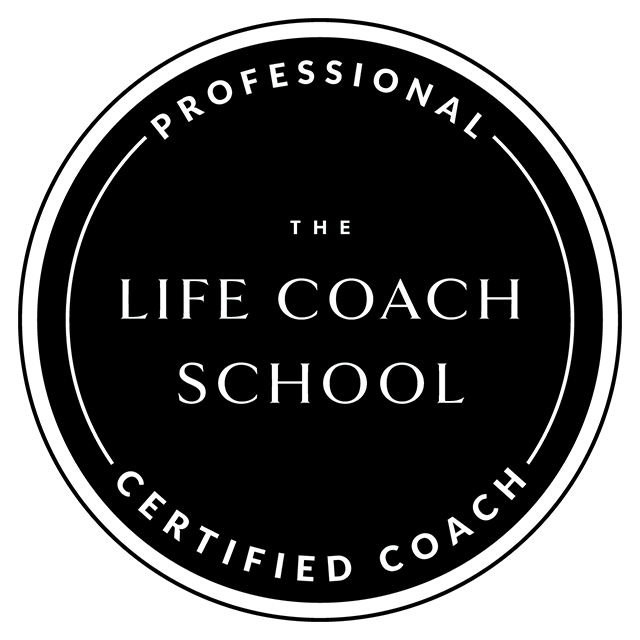Welcome to
Get Out of the Rut with Thais Glenn, episode number 35.
Hello guys, welcome back to the podcast! Today, I’m excited to talk about this because there are a lot of things cooking in the background—so many new things coming up for you soon—and I wanted to share what that means for you and for me.
One of the things I really want to talk about today is this word that has almost become a buzzword:
mindset. What is mindset, anyway? We hear so much about it.
Many years ago, I read a book by Carol Dweck about the growth mindset and the fixed mindset. I don’t know many people who have read the whole book—it’s a bit heavy, right? Even for me, it took a long time to really study it and understand what mindset is, and especially the difference between growth and fixed mindsets.
People who are into coaching or personal development like to think of themselves as having a growth mindset. But that’s not really how it works. I don’t believe anyone has a growth mindset in every area of life. The growth mindset is simply the belief that you can develop your abilities through effort, learning, and dedication.
It’s the idea that you can grow, develop, and change. But it’s not something you hold in every area of your life. Maybe you have a growth mindset about your business but a fixed mindset about relationships or your health.
The fixed mindset, on the other hand, is the belief that your abilities are static—you have it or you don’t. You’re either confident or you’re not; talented or not; intelligent or not. It’s unchangeable.
You might believe you can grow your business because you’re learning and improving as a CEO, but in another area—say, weight loss—you might think, “This is just my body. I’ve always been this way. Nothing works.” That’s the fixed mindset creeping in, creating that inner conflict between what you
want to believe and what you actually
believe deep down.
That’s where the concept of mindset becomes fascinating. Mindset is the lens through which you see the world—it’s a set of beliefs and attitudes that drive your thoughts, emotions, and behaviors. It’s like a filter running in the background that shapes how you experience life.
Your mindset is built from your experiences and the context of your life. Someone who grew up in hardship might see the world differently from someone who didn’t. But even two people with similar backgrounds can develop completely different mindsets—one might say, “I’ll do better for my kids,” while another might say, “That’s just how life is.”
So, when we talk about growth versus fixed mindset, it can start to feel black and white—like positive versus negative, right versus wrong. But life isn’t that simple.
That’s why I want to introduce you to a different mindset—what I call the
Future Self Mindset.
The Future Self Mindset is another way of seeing the world. Instead of filtering your life through the lens of growth versus fixed, or positive versus negative, you begin to see yourself through the lens of your
future self.
This means focusing on the person you are becoming—not because she’s better than you, but because she’s who you truly are underneath all the layers society has placed on you.
We all carry layers of “crust”—beliefs like “I’m not confident,” “I’m not strong enough,” or “I’m just not happy.” None of those things are true. You are a perfect human being—not a robot.
A perfect human being cries, gets angry, feels lost, and doesn’t always know what to do. Why? Because no one ever taught us how to handle emotions. You’re not broken for not knowing—you’re human.
Think about a child learning to ride a bike. They fall over and over until someone holds the seat or adds training wheels. That’s how life works—we need guidance to learn new skills. Yet, when it comes to living life, we think we should just know how to do it alone.
The Future Self Mindset helps you unlearn those old patterns. It helps you discover what
you value, what matters to
you, not what society tells you should matter.
So many people come to coaching wanting help fitting their life into the box they were given—checking off all the boxes of what success “should” look like. But when they’ve checked all the boxes and still feel unhappy, that’s when the Future Self Mindset becomes powerful.
It helps you build your own box—the life that fits
you.
For some people, that means a structured, organized life. For others, it means freedom and flow. The key is living from confidence and joy because you’re aligned with who you truly are.
When you connect with your future self—when you imagine the woman you’re becoming—you start living
as her now.
This isn’t about chasing the future. It’s about embodying the future that’s calling you.
You’ve probably heard of the
Be-Do-Have model: Be the person, do what she does, and then you’ll have what she has. It’s a great model, and it works—up to a point. But there’s more to it.
If you don’t actually
see yourself as that person, the model falls apart. You can’t “be” someone you can’t even imagine being.
That’s where the
Future Self Mindset adds depth. It brings in vision, belief, and identity alignment. It helps you see that your desires aren’t random—they’re your soul’s calling.
When your goals come from that place, they feel inevitable.
So, the Future Self Mindset is not about changing everything around you. It’s about changing how you see yourself, your world, and what’s possible for you.
It’s about living with awareness of your values, your desires, your vision, and creating your life from that truth—not from fear or limitation, but from love and possibility.
That’s what the Future Self Mindset is all about.
And I can’t wait to take you deeper into it inside the Future Self Mindset Program. Enrollment opens soon, and I hope you’ll join us.
Remember, there might be a version of you that feels more aligned, more fulfilled, and more
you—and she’s not far away. She’s already within you, waiting for you to see her.
I love you guys, and I’ll see you next week.








